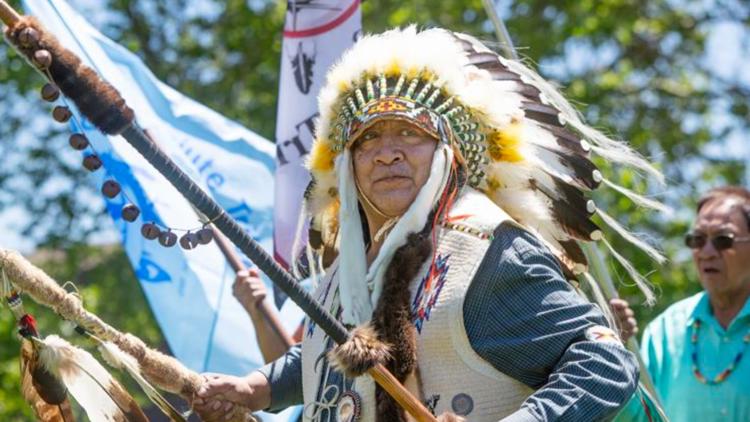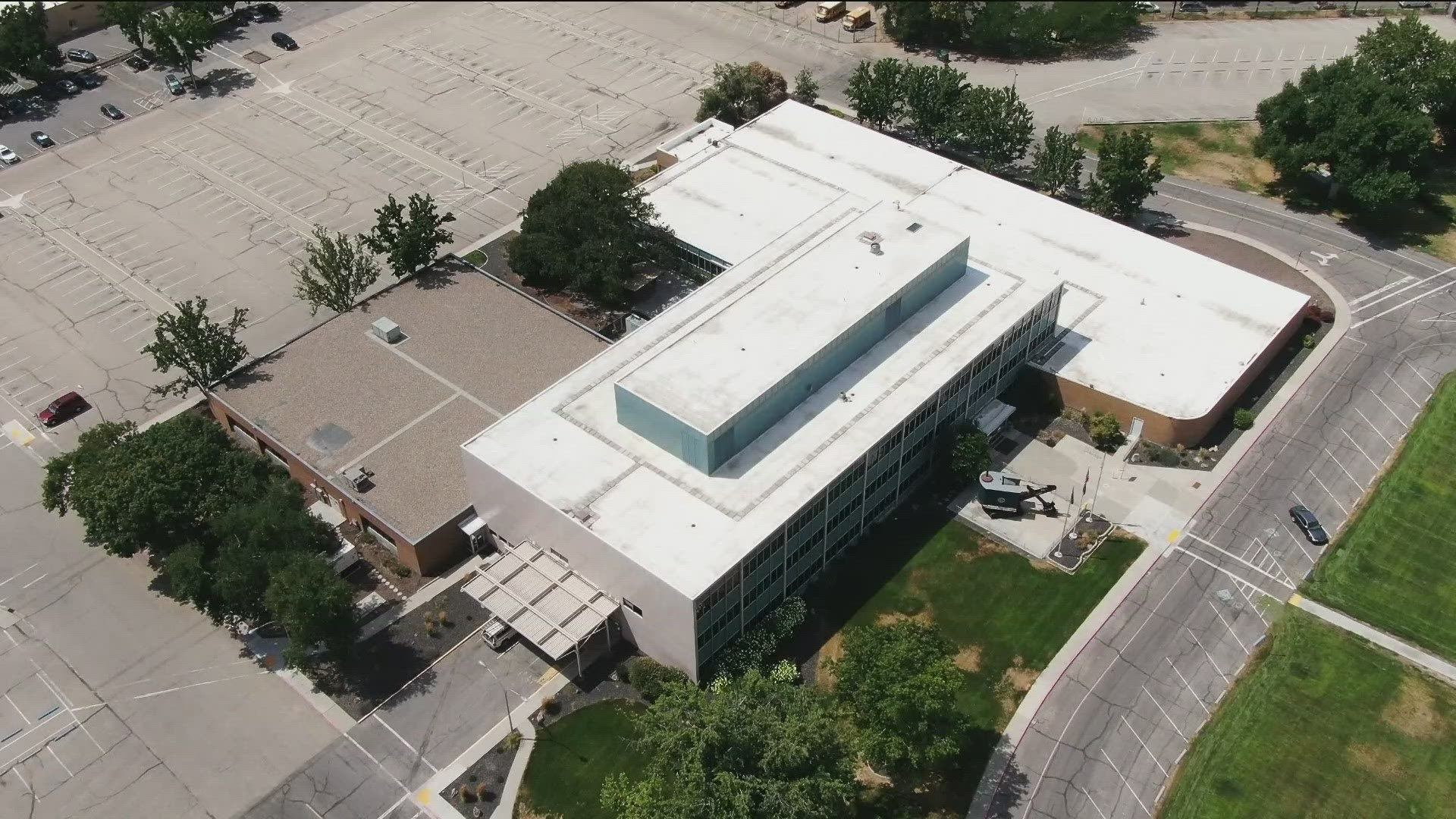BOISE, Idaho — This story originally appeared in The Idaho Press.
Around a hundred folks gathered at Eagle Rock Park on Friday morning for one reason — to remember their ancestors and people who originally lived on the land beneath their feet.
This was the 13th year that the Original Boise Valley People has hosted the Return of the Boise Valley People event, which was originally organized by Lori Edmo and Louise Dixey.
“We have a lot of history in this country that is never told,” Dixey, the cultural resources director for the Language Cultural Preservation Department, said on Friday.
The Return of the Boise Valley People events began on Thursday at Boise City Hall, where tribal leaders met with the Idaho Military Division.
Boise Mayor Lauren McLean and Boise Valley tribal leaders also spoke that evening, beginning the weekend of events. On Friday, a barbecue began at Eagle Rock Park at 12:30 p.m., when several descendants of Boise natives spoke and shared history and stories.
Boise Valley People refers to the tribes that lived in the area before being forcibly removed in the 1800s with the discovery of gold and silver. Before it was Boise, the land was originally inhabited by the Shoshone, Bannock and Northern Paiute people.
Eagle Rock Park, formerly known as Quarry View Park, was renamed for a chief to recognize the original inhabitants of the Boise Valley. When the land on Eagle Rock Park became available, Edmo’s tribe — Shoshone-Bannock — pitched in $5,000 to become part owners of the park.
The average person would never know that those foothills, now topped by a few homes, are burial sites of Boise natives.
“All of this,” Antoinette Cavanaugh, a board member of the nonprofit said, gesturing to the foothills behind the park, “was supposed to be developed. Then there was a partnership with the local community and tribal entities to avoid this being developed because these are all burial sites.”
The park land was called a “valley of friendship” where there were hot springs for people to rest and heal, Cavanaugh said.
Edmo, whose great-grandfather was born near the Boise River, says that the agreement between her native people and the city of Boise goes back to the 1900s.
It was around this time that the city of Boise committed to building a cultural center for the native people. That has yet to happen, Cavanaugh said.
“The history of removal of the original Boise Valley people is a difficult one, but it should be known to all,” Cavanaugh said. “Our ancestors understood that they could not be protected by the U.S. Calvary and many were removed by force, being driven out of the Boise Valley to live on U.S. government-established reservations located far from this location.”
That history often holds a lot of pain for a lot of people, Miss Shoshone-Bannock Develynn Hall said.
“Our people have a lot of hurt still,” Hall said. “This is a safe space for all of us to share and collaborate. We are supposed to try and just have that trust with each other.”
Events like this one are all about healing for everyone, Hall said.
“For me personally, it’s always about creating more safe spaces to have conversations about culture, language, to keep that legacy going for the future,” Hall said.
Events will end on Sunday at a joint sunrise ceremony at Eagle Rock Park. On Saturday a walk/run will be held at 9 a.m. at Eagle Rock Park and other events including a lunch, cultural classes, Indian games, auction and dinner will be held at Gowen Field from noon to 6 p.m.
This article originally appeared in the Idaho Press, read more on IdahoPress.com.
Watch more Local News:
See the latest news from around the Treasure Valley and the Gem State in our YouTube playlist:
HERE ARE MORE WAYS TO GET NEWS FROM KTVB:
Download the KTVB News Mobile App
Apple iOS: Click here to download
Google Play: Click here to download
Watch news reports for FREE on YouTube: KTVB YouTube channel
Stream Live for FREE on ROKU: Add the channel from the ROKU store or by searching 'KTVB'.
Stream Live for FREE on FIRE TV: Search ‘KTVB’ and click ‘Get’ to download.



